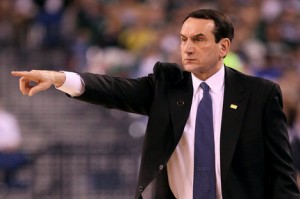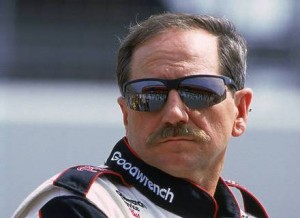The more I write, the more I’ve come to the determination that writers really do write what they know, and if you really want to know who you are, it’s as simple as looking back at what you’ve written. Ultimately that requires being critical of your flaws and weaknesses. And it’s true, self-awareness can be a bitch sometimes.
When I started creating my heroine, Vespa Wynde, I realized that she, like me, would be defined by her family. Most importantly her parents – Daemyn Wynde and Utara Fireheart. Interesting that they don’t have the same last name; I’m not going to explain why today. Eventually I’ll talk more about Utara, as well, because the mother’s role in the heroine’s journey isn’t something readily defined when looking for guidance from the world of literary academia. Actually the heroine’s journey itself isn’t really encapsulated and spoken about. I’ve done a lot of research, reading of fiction, soul-searching, and discussing with other writers (both men and women), and I’ve come to the determination that you can’t plug female characters into Joseph Campbell’s famous Hero’s Journey model. It just doesn’t work. So I tossed out the idea of following the monomyth and started working on creating the elements of an heroic arc that would resonate for a female character. To me, the relationships women have with our mothers are the hardest to define – we grow up not wanting to be our mothers, then at some point we come to the realization that we’re more like our mothers than we ever thought we’d be. For my mother that’s the highest compliment, and hopefully she knows that.
To build Vespa, then, the foundation had to begin with her father. I think the relationships young women have with their fathers are more open and unguarded. For that reason, fathers can be more character-defining in a young woman’s teenage and younger adult years. So who is Vespa’s father? If I had to describe him succinctly, he’s a cross between NASCAR legend Dale Earnhardt Sr. and Duke basketball coach Mike Krzyzewski.
Those two men have made quite an impression on me, and interestingly enough I can trace back my interest in them directly to my father’s influence on my life. I grew up an Army brat, so essentially my father and his job did define who I was in my youth. Most Army brats I know don’t have too many complaints about the lifestyle – we got to see and go a lot of different places, and get used to meeting new people – but there are some drawbacks. For me, the biggest downside was that once I entered college, it would be one of the longest stints I’d spent in any one place in my life to that point. Considering that it was Duke University, I figured going in that it would work out okay, and it did. College was literally the time of my life. And you can’t live in North Carolina for four years without two things taking over your life – college basketball and NASCAR racing.
 Fortunately for me, I actually had the chance to interact with Coach K in college. He believed the “sixth man” – otherwise known as the Cameron Crazies – was crucial to the success of Duke basketball. This meant he even coached us at times; freshmen had informal dorm gatherings, and he spoke to the entire student section at certain pep rallies. He “encouraged” us to be better fans – whether that meant more behaved or more enthusiastic depended on the circumstances. I’ll never forget one day warming up with the Dancing Devils outside Cameron, waiting for our scheduled practice time on the court. About a minute before it was our turn, the door popped open and out walked Coach K, who said, “I know our time’s up, but would you ladies mind if we ran a little over?” The man’s name is on the court; he didn’t have to ask, but he did. When the basketball team wound up practice a little later, he asked if we could perform one of our routines for the team, because they were always in the locker room for our performances. Coach K is a class act, but equally impressive has been his ability to sustain greatness even as the world of college basketball has shifted. He is the epitome of the word “winner.” With his 903rd career coaching victory earlier this year, Coach K cemented his legendary status in sports history.
Fortunately for me, I actually had the chance to interact with Coach K in college. He believed the “sixth man” – otherwise known as the Cameron Crazies – was crucial to the success of Duke basketball. This meant he even coached us at times; freshmen had informal dorm gatherings, and he spoke to the entire student section at certain pep rallies. He “encouraged” us to be better fans – whether that meant more behaved or more enthusiastic depended on the circumstances. I’ll never forget one day warming up with the Dancing Devils outside Cameron, waiting for our scheduled practice time on the court. About a minute before it was our turn, the door popped open and out walked Coach K, who said, “I know our time’s up, but would you ladies mind if we ran a little over?” The man’s name is on the court; he didn’t have to ask, but he did. When the basketball team wound up practice a little later, he asked if we could perform one of our routines for the team, because they were always in the locker room for our performances. Coach K is a class act, but equally impressive has been his ability to sustain greatness even as the world of college basketball has shifted. He is the epitome of the word “winner.” With his 903rd career coaching victory earlier this year, Coach K cemented his legendary status in sports history.
In Daemyn Wynde I see a lot of the same fierce determination, leadership skills, and winning attitude. In addition to being Vespa’s father, he was her coach. The novel Wynde begins after their competitive careers as mentor and mentee, but the heights they already have achieved together have left an indelible impression on Vespa’s life. Coach K has never coached his own children – he has three daughters – but many of his athletes are actually from basketball families. I think in part Coach K has successfully recruited so many legacy athletes because children of coaches already have a high basketball IQ; they already speak the same language. For Daemyn and Vespa, their language is a form of strategic air racing in a team sport – and I’ll save the rest of that explanation for later, too.
 If you’re talking racing and winning, then Dale Earnhardt sure seems like a natural fit. I became a Dale Senior fan by way of being an even bigger #2 Rusty Wallace fan. (I still have the #2 jean vest to prove it too.) Rusty and Dale parked their trailers side by side, and racing for Rusty was never the same after the #3’s fateful collision into the wall in Daytona. With Earnhardt’s death came the end of an era in NASCAR, too. Early on in my story design, I realized Daemyn was too much of a scamp to be just based on Coach K, and if he were then he wouldn’t be original would he? Daemyn’s got a ruthless, naughty streak that reminds me of the racing legend. Earnhardt was notorious for bumping the pace car – and if he was going for the win, pushing whoever happened to be in the way up the track. It’s not just the sometimes overly aggressive racer that I modeled into Daemyn, though, but also Earnhardt’s other competitive streak – a shrewd businessman who understood the power of branding and working the system to better his life.
If you’re talking racing and winning, then Dale Earnhardt sure seems like a natural fit. I became a Dale Senior fan by way of being an even bigger #2 Rusty Wallace fan. (I still have the #2 jean vest to prove it too.) Rusty and Dale parked their trailers side by side, and racing for Rusty was never the same after the #3’s fateful collision into the wall in Daytona. With Earnhardt’s death came the end of an era in NASCAR, too. Early on in my story design, I realized Daemyn was too much of a scamp to be just based on Coach K, and if he were then he wouldn’t be original would he? Daemyn’s got a ruthless, naughty streak that reminds me of the racing legend. Earnhardt was notorious for bumping the pace car – and if he was going for the win, pushing whoever happened to be in the way up the track. It’s not just the sometimes overly aggressive racer that I modeled into Daemyn, though, but also Earnhardt’s other competitive streak – a shrewd businessman who understood the power of branding and working the system to better his life.
Most important to me was that both Coach K and Dale Earnhardt represent love of family. Above all else this defines Vespa and her relationship with her father. Hopefully Daemyn will be somebody equally as fascinating as the two real life men who inspired his character.

Pingback: Shaping a Heroine – A Daughter’s Mother » triciabarr.com